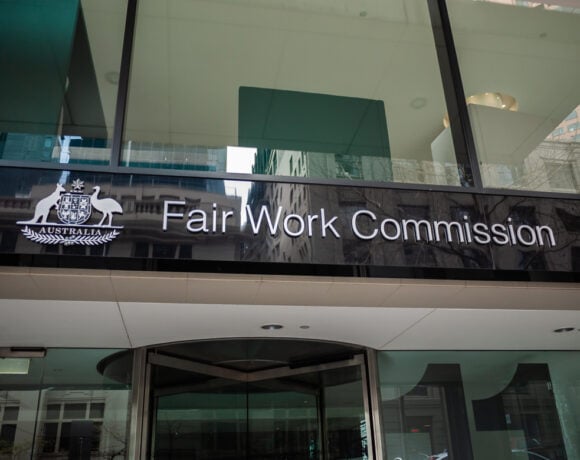Fair Work Australia will review all modern awards this year, including transitional arrangements. The review will be based mainly on applications to vary modern awards.
In some cases, FWA may also propose variations. It is likely that these proposed variations will be limited to technical and drafting matters. Any application to vary a modern award is to be filed early March 2012. After this time a procedure and a timetable will be adopted. Baking Associations of Australia (BAA) will be making a submission on behalf of the industry.
Annual Wage Review 2011–12
An increase in minimum wage rates determined by Fair Work Australia will be operative from the first pay period to commence on or after July 1, 2012.
Review of Fair Work Act
The government has announced the terms of reference for the review of the Fair Work Act 2009. In announcing the terms of reference, Federal Industrial Relations Minister The Hon. Bill Shorten, MP, said the government believes the Fair Work Act is working well, “But there is always room for improvement”. The panel, which will be required to report by May 31 next year, will examine and report on the extent to which the Fair Work legislation is operating as intended, including:
• the creation of a clear and stable framework of rights and obligations that is simple and straightforward to understand;
• the emphasis on enterprise-level collective bargaining;
• the promotion of fairness and representation at work;
• effective procedures to resolve grievances and disputes;
• genuine unfair dismissal protection;
• any differential impacts across regions, industries occupations and groups of workers; and
• areas where the evidence indicates that the operation of the Fair Work legislation could be improved consistent with the objects of the legislation.
Superannuation
In November 2011, legislation was introduced to Federal Parliament during 2012 regarding superannuation, including an increase in the superannuation guarantee change (SGC), the setting up of MySuper funds, the introduction of SuperStream and changes to payslip regulation with respect to payslips.
The government introduced the Superannuation Guarantee (Administration) Amendment Bill 2011 providing for an increase to the SG levy from its current 9 per cent to 12 per cent in incremental steps from July 1, 2013, and July 1, 2019.
The government will introduce a type of universal default fund with low fees and limited investment options, called My Super.
A more immediate issue for employers, however, is the proposed introduction of SuperStream, which is directed to removing as much manual processing from the superannuation system as possible and making information and money transfers as automatic as possible.
Under SuperStream, a fully enabled employer could enrol a new employee in the default fund directly out of its employee records (or set up contributions with a chosen fund) without having to re-key or transfer the information to a new ‘document’ to send to the fund. The implementation of SuperStream will not commence until July 2013.
Payslips
Reporting requirement would be introduced transitionally:
• July 1, 2012: payslips to report the expected date the contribution will be paid; and
• July 1, 2013: employers to report actual contributions made and information about the fund into which contributions are made (subject to their being no significant payroll system costs).
Long Service Leave Act – Tasmania
New long-service leave provisions start in Tasmania from July 1, 2012. Long service will be 8.66 weeks of long service leave in respect of the first 10 years of continuous employment with the employer and 4.33 weeks of long-service leave in respect of each additional five years of continuous employment. Long service accrues at 0.8667 weeks of per year of service.
Harmonised Work Health and Safety legislation
The harmonised Work Health and Safety (WHS) legislation is set to commence in five out of nine jurisdictions (i.e. Commonwealth, New South Wales, Queensland, Northern Territory and Australian Capital Territory) commencing from January 1, 2012.
Transitional provisions — modern awards
Most modern awards contain transitional provisions, which is the amount representing the difference between an employee’s minimum wage under the applicable award or NAPSA as at December 31, 2009 and the appropriate wage rate under the applicable modern award (either higher or lower) as at January 1, 2010. This ‘transitional amount’ is subject to a phasing-in period, adjusted on July 1 each year and will cease on July 1, 2014.
High-income threshold
Under unfair dismissal law, certain categories of employee are excluded from making an application of unfair dismissal to FWA. One such category is an employee who is not covered by a modern award or enterprise agreement whose annual rate of earnings exceeds the high-income threshold (currently $118,100 a year). The threshold is adjusted on July 1 each year in accordance with the Fair Work Regulations. High-income employees who are covered by a modern award can agree to avoiding or modifying the award.
Anton Duc is workplace relations manager for the Baking Industry Association (NSW Employers) and industrial relations advisor for the Baking Industry Association of Victoria. Anton advises the BAA on award modernisation and is also a practicing solicitor with a Sydney law firm.







COMMENTS